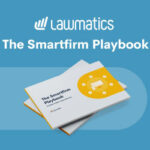
Simpler Legal Papers Are Often Better
//
 Many attorneys think that clients will be impressed by larger displays of legal effort, and that this makes it beneficial to produce voluminous legal papers to promote a client’s interests. Other lawyers might believe that a court will also be more persuaded by larger legal papers than arguments presented in simpler documents. However, from my experience, lawyers usually should try to make their legal papers as simple as possible due to the complexities of producing more voluminous legal papers in a given situation.
Many attorneys think that clients will be impressed by larger displays of legal effort, and that this makes it beneficial to produce voluminous legal papers to promote a client’s interests. Other lawyers might believe that a court will also be more persuaded by larger legal papers than arguments presented in simpler documents. However, from my experience, lawyers usually should try to make their legal papers as simple as possible due to the complexities of producing more voluminous legal papers in a given situation.
I first experienced the power of simpler motions earlier in my career with one of the first summary judgment motions I drafted and filed. My client had two co-defendants in the case, and I had just been assigned to the matter even though it had been pending since I was a freshman in high school. I put together a simple summary judgment motion, mostly because I did not have too much knowledge of the file and because I did not have sufficient time to be brought up to speed on all of the case materials.
googletag.cmd.push( function() { // Display ad. googletag.display( "div-id-for-top-300x250" ); });When giving me advice about motions, my secretary said that I should only attach limited exhibits to the motion so that it would be easy for the judge to pick up the motion papers and refer to documents. This was in the days before electronic filing, and the only way that a judge would be able to refer to exhibits would be to pull a given tab on the motion papers and refer to the hard copy document. I ended up centering my summary judgment motion upon a recent appellate legal decision in my favor and only included a few factual exhibits.
 Sponsored How Generative AI Is Disrupting Law Firm Billing Practices Amid legal landscape shifts, billing practices remain vital. With generative AI enabling faster, more efficient work, some law firms may adjust billing models accordingly. From LexisNexis
Sponsored How Generative AI Is Disrupting Law Firm Billing Practices Amid legal landscape shifts, billing practices remain vital. With generative AI enabling faster, more efficient work, some law firms may adjust billing models accordingly. From LexisNexis When the deadline came for the summary judgment motion, I was surprised that I did not receive my co-defendant’s papers in the mail. I ended up discovering that the co-defendant had filed the papers by the deadline, but the papers were so voluminous, they had to ship the motion papers in a box to the attorneys involved in the case, and this accounted for the delay. The motion papers must have comprised thousands of pages, and an entire banker’s box was full of the papers my co-defendant assembled to advance its summary judgment arguments.
When it came time to argue the motion in court, the judge made a comment about how voluminous the motion papers of the co-defendant were. The judge mentioned how the court attorney needed to wheel the papers around and how difficult it was for the court to refer to the papers when preparing for oral arguments. At the end of the day, I won summary judgment for my client, and my co-defendant lost. I do not think that the volume of motion papers was why the co-defendant lost the summary judgment motion and I won, but it probably helped that the court could digest my arguments more easily than my co-defendant’s points, which required sifting through thousands of pages of documents.
googletag.cmd.push( function() { // Display ad. googletag.display( "div-id-for-middle-300x250" ); }); googletag.cmd.push( function() { // Display ad. googletag.display( "div-id-for-storycontent-440x100" ); }); googletag.cmd.push( function() { // Display ad. googletag.display( "div-id-for-in-story-youtube-1x1" ); });Sometimes, simple legal papers can amplify an argument and make a solid point that might be missed if the argument is presented in more voluminous papers. Earlier in my career, I worked at a law firm at which an associate prepared a voluminous and well-reasoned summary judgment motion arguing that an act of the plaintiff meant that she did not have any claims in that case. The motion was supported by deposition transcripts, court records, and a brief that included a boatload of legal reasoning. We all thought that the motion was going to be a winner.
We eventually received opposition papers from plaintiff’s counsel, and we were pretty stunned. The opposition consisted of a one-page affirmation that argued the summary judgment motion should be denied since discovery was not yet complete. The affirmation only included a citation to the court rules, and did not include citations to case law or other authorities. There was also a glaring typo in the papers, which really stood out to me, since the lawyers could presumably proofread a one-page opposition! In any case, the court eventually denied the summary judgment motion based on the reasoning contained in that one-page opposition. Perhaps the court really focused in on the argument presented since the opposition papers were so simple.
Sponsored Sponsored InterAction+ Brings Power Of CRM Software To Law Firms Of All Sizes The only legal CRM with exclusive content from LexisNexis®. From LexisNexis® InterAction+™
Sponsored InterAction+ Brings Power Of CRM Software To Law Firms Of All Sizes The only legal CRM with exclusive content from LexisNexis®. From LexisNexis® InterAction+™  Sponsored The Smartfirm Playbook - Thriving In Today’s Legal Landscape Strategically using software and automation to boost efficiency and streamline operations, allowing for a laser-focus on practicing law. From Lawmatics
Sponsored The Smartfirm Playbook - Thriving In Today’s Legal Landscape Strategically using software and automation to boost efficiency and streamline operations, allowing for a laser-focus on practicing law. From Lawmatics  Sponsored LawPay Pro Offers Upgraded Time And Billing Essentials AffiniPay’s latest product for the legal community, introduced earlier this year, presents a simple web-based solution for attorneys seeking seamless firm cash flow. From Above the Law
Sponsored LawPay Pro Offers Upgraded Time And Billing Essentials AffiniPay’s latest product for the legal community, introduced earlier this year, presents a simple web-based solution for attorneys seeking seamless firm cash flow. From Above the Law  Sponsored LawPay Pro Offers Upgraded Time And Billing Essentials AffiniPay’s latest product for the legal community, introduced earlier this year, presents a simple web-based solution for attorneys seeking seamless firm cash flow. From Above the Law
Sponsored LawPay Pro Offers Upgraded Time And Billing Essentials AffiniPay’s latest product for the legal community, introduced earlier this year, presents a simple web-based solution for attorneys seeking seamless firm cash flow. From Above the Law In any case, lawyers might think they are doing a client a good service by preparing complex and voluminous papers, and of course, sometimes lawyers need to be thorough to preserve arguments for appeal and for other reasons. However, sometimes simpler legal papers can best serve a client’s interests.
 Jordan Rothman is a partner of The Rothman Law Firm, a full-service New York and New Jersey law firm. He is also the founder of Student Debt Diaries, a website discussing how he paid off his student loans. You can reach Jordan through email at [email protected].
Jordan Rothman is a partner of The Rothman Law Firm, a full-service New York and New Jersey law firm. He is also the founder of Student Debt Diaries, a website discussing how he paid off his student loans. You can reach Jordan through email at [email protected].
 Sponsored How to Achieve Quicker, More Valuable Case Settlements with Minimal Effort: A Guide for Personal Injury Lawyers We’re pleased to share the “Top 5 Things Carriers Are Looking for in Demands” — a guide authored by a lawyer with deep experience on… From EvenUp and Above The Law
Sponsored How to Achieve Quicker, More Valuable Case Settlements with Minimal Effort: A Guide for Personal Injury Lawyers We’re pleased to share the “Top 5 Things Carriers Are Looking for in Demands” — a guide authored by a lawyer with deep experience on… From EvenUp and Above The Law  Sponsored How Generative AI Is Disrupting Law Firm Billing Practices Amid legal landscape shifts, billing practices remain vital. With generative AI enabling faster, more efficient work, some law firms may adjust billing models accordingly. From LexisNexis Topics
Sponsored How Generative AI Is Disrupting Law Firm Billing Practices Amid legal landscape shifts, billing practices remain vital. With generative AI enabling faster, more efficient work, some law firms may adjust billing models accordingly. From LexisNexis Topics Biglaw, Courts, Jordan Rothman, Small Law Firms
Introducing Jobbguru: Your Gateway to Career Success
The ultimate job platform is designed to connect job seekers with their dream career opportunities. Whether you're a recent graduate, a seasoned professional, or someone seeking a career change, Jobbguru provides you with the tools and resources to navigate the job market with ease.
Take the next step in your career with Jobbguru:
Don't let the perfect job opportunity pass you by. Join Jobbguru today and unlock a world of career possibilities. Start your journey towards professional success and discover your dream job with Jobbguru.
Originally posted on: https://abovethelaw.com/2023/12/simpler-legal-papers-are-often-better/